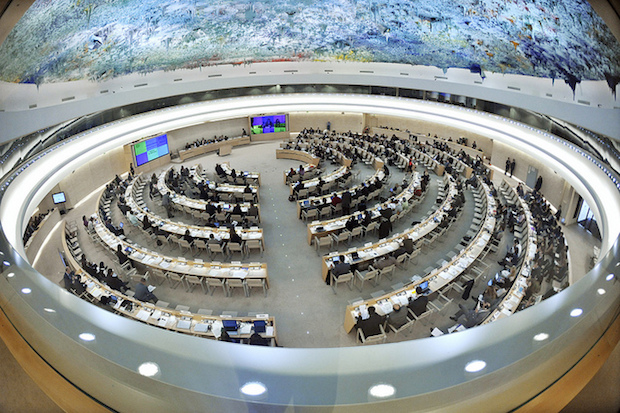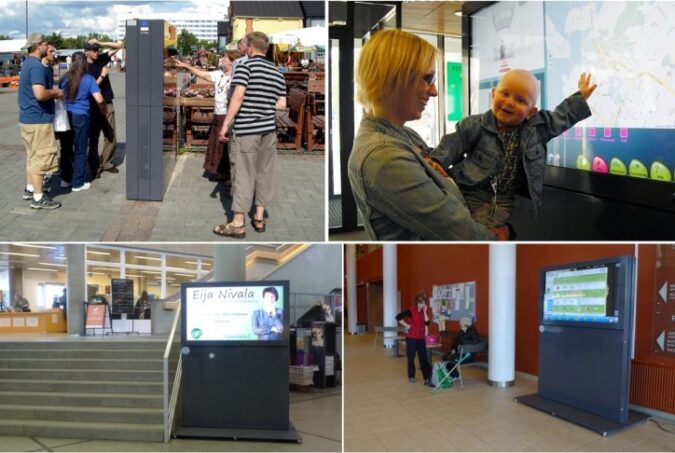
The Human Rights Council in Geneva, Switzerland. Image: United Nations Photo (Flickr CC BY-NC-ND 2.0).
“The digital access industry is in the business of digital expression […] since privately owned networks are indispensable to the contemporary exercise of freedom of expression, their operators also assume critical social and public functions. The industry’s decisions […] can directly impact freedom of expression and related human rights in both beneficial and detrimental ways.” [Report of the Special Rapporteur on the right to freedom of expression, June 2017] The Internet is often portrayed as a disruptive equaliser, an information medium able to directly give individuals access to information and provide a platform to share their opinions unmediated. But the Internet is also a tool for surveillance, censorship, and information warfare. Often states drive such practices, but increasingly the private sector plays a role. While states have a clear obligation to protect human rights on the Internet, questions surrounding the human right accountability of the private sector are unclear. Which begs the question what the responsibility is of the private industry, which runs and owns much of the Internet, towards human rights? During the 35th session of the United Nations (UN) Human Rights Council this month, David Kaye, UN Special Rapporteur (UNSR) for the right to freedom of expression, presented his latest report [1], which focuses on the role of the private sector in the provision of Internet and telecommunications access. The UNSR on freedom of expression is an independent expert, appointed by the Human Rights Council to analyse, document, and report on the state of freedom of expression globally [2]. The rapporteur is also expected to make recommendations towards ‘better promoting and protection of the right to freedom of expression’ [3]. In recent years, the UNSRs on freedom of expression increasingly focus on the intersection between access to information, expression, and the Internet [4]. This most recent report is a landmark document. Its focus on the role and responsibilities of the private sector towards the right to freedom of…


